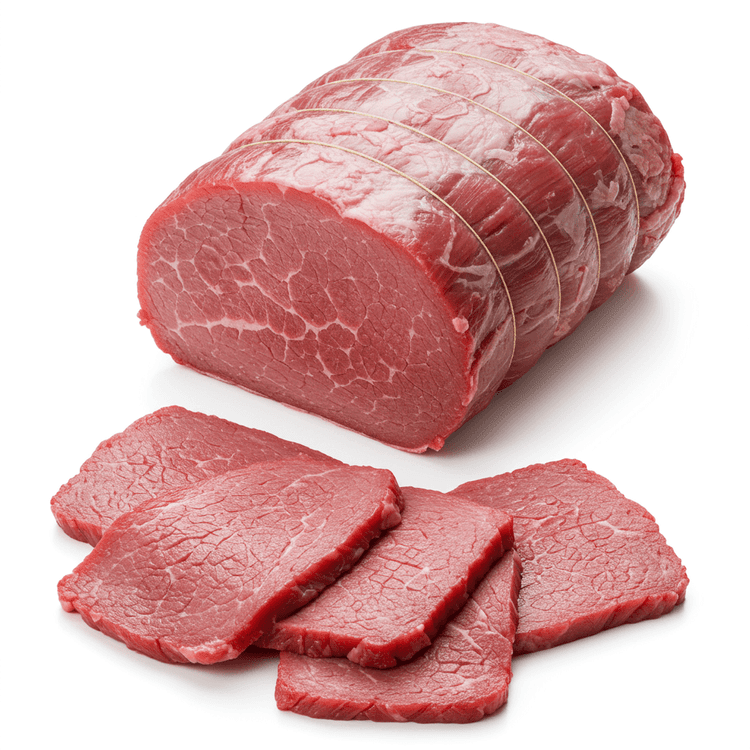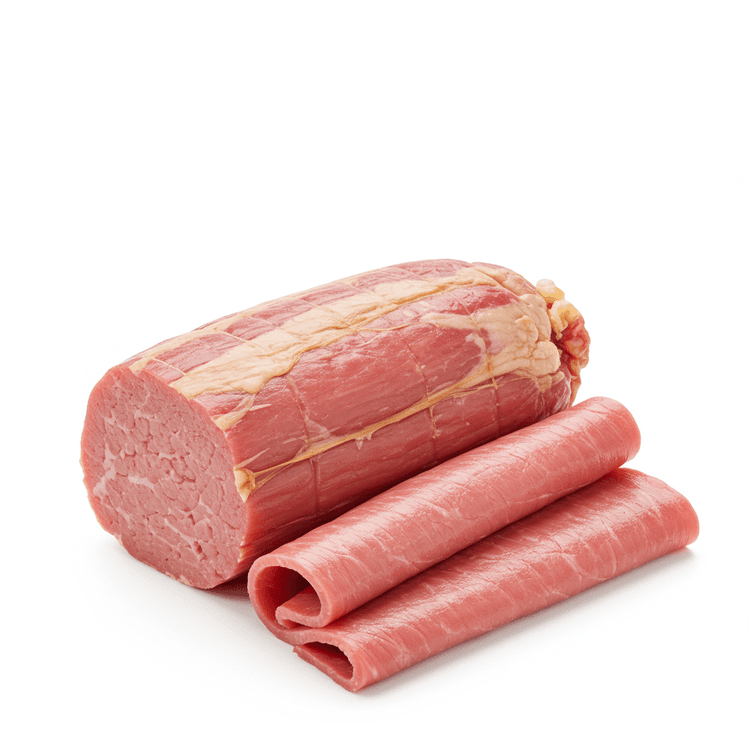
Roast Beef
Roast beef is a classic meat dish known for its rich, savory flavor and tender texture. Typically made from cuts like sirloin, ribeye, or rump roast, it is slow-cooked or oven-roasted to perfection, resulting in a juicy interior and a caramelized crust. Its deep brown appearance and mouthwatering aroma make it a centerpiece for hearty meals. Roast beef is a versatile protein that pairs well with a variety of sides, such as mashed potatoes, roasted vegetables, or Yorkshire pudding, making it a favorite for Sunday dinners and holiday feasts.
Common Uses
- Serve roast beef thinly sliced in sandwiches, such as the classic roast beef sandwich or French dip, for a flavorful and filling meal.
- Use roast beef as the main protein in a traditional Sunday roast dinner, accompanied by gravy, roasted potatoes, and seasonal vegetables.
- Incorporate roast beef into salads for a protein-packed addition, pairing it with greens, vinaigrette, and crunchy toppings.
- Dice or shred leftover roast beef to make hearty stews, soups, or casseroles, adding depth and richness to the dish.
- Prepare roast beef as a topping for pizzas or flatbreads, combining it with caramelized onions, cheese, and herbs for a gourmet twist.
Nutrition (per serving)
Nutrition (per serving)
Calories
250.0kcal (12.5%)
Protein
26.0g (52%)
Carbs
0.0g
Sugars
0.0g
Healthy Fat
7.6g
Unhealthy Fat
6.5g
% Daily Value based on a 2000 calorie diet
Nutrition (per serving)
Calories
250.0kcal (12.5%)
Protein
26.0g (52%)
Carbs
0.0g
Sugars
0.0g
Healthy Fat
7.6g
Unhealthy Fat
6.5g
% Daily Value based on a 2000 calorie diet
Health Benefits
- High in protein, which supports muscle growth and repair.
- Rich in iron, essential for oxygen transport in the blood and preventing anemia.
- Contains zinc, which boosts immune system function and supports wound healing.
- Provides B vitamins, particularly B12, which is vital for energy production and nerve health.
- Low in carbohydrates, making it a suitable option for low-carb and keto diets.
- Offers selenium, an antioxidant that helps protect cells from damage.
Substitutes
Chefadora AI is here.
Experience smarter, stress-free cooking.
Storage Tips
Store roast beef in an airtight container or wrap it tightly in aluminum foil or plastic wrap to prevent exposure to air. Keep it refrigerated at 40°F (4°C) or below and consume within 3-5 days for optimal freshness. If you need to store it longer, freeze it in a freezer-safe bag or container, ensuring all air is removed to prevent freezer burn. Thaw frozen roast beef in the refrigerator overnight before reheating or using in recipes.

